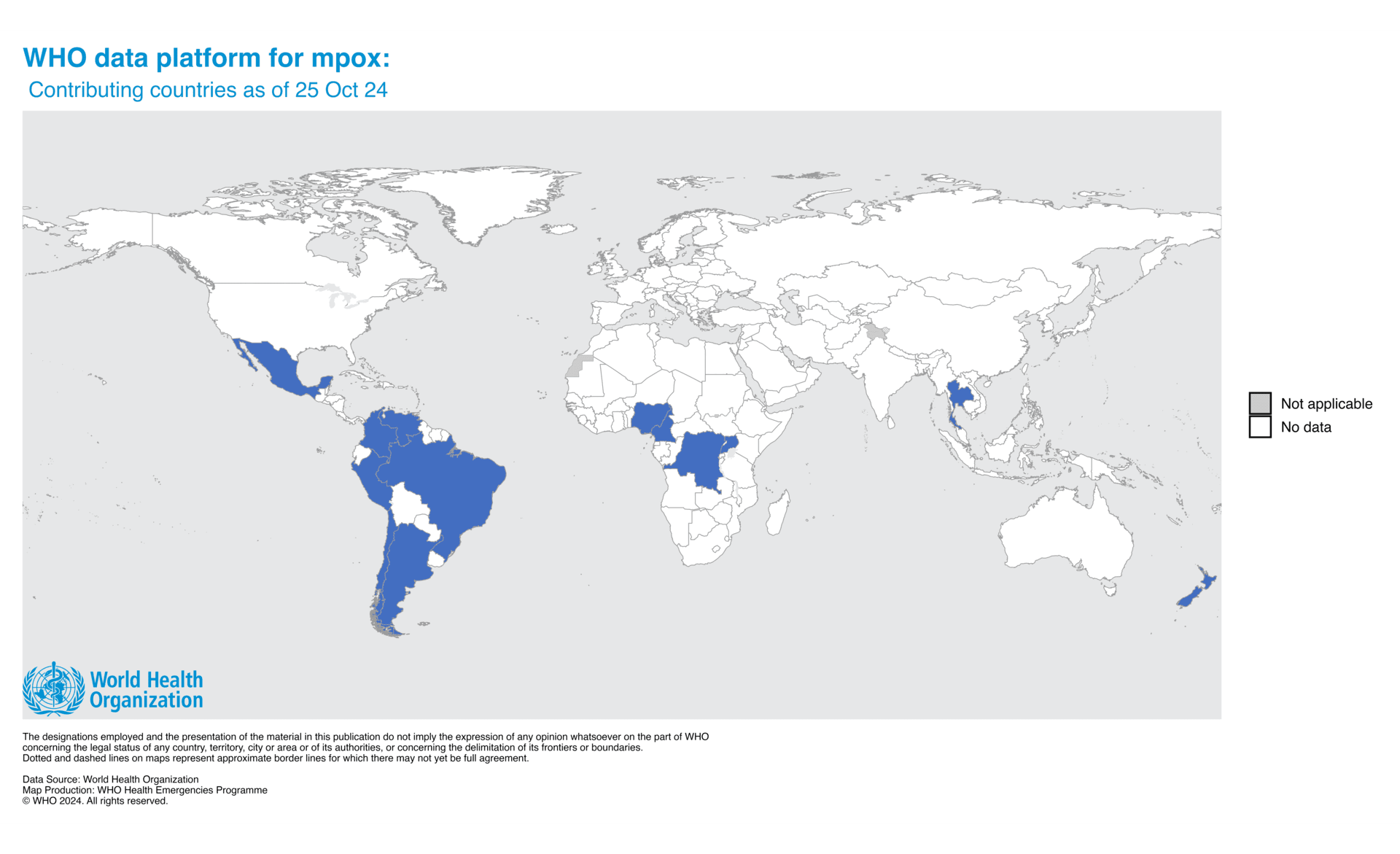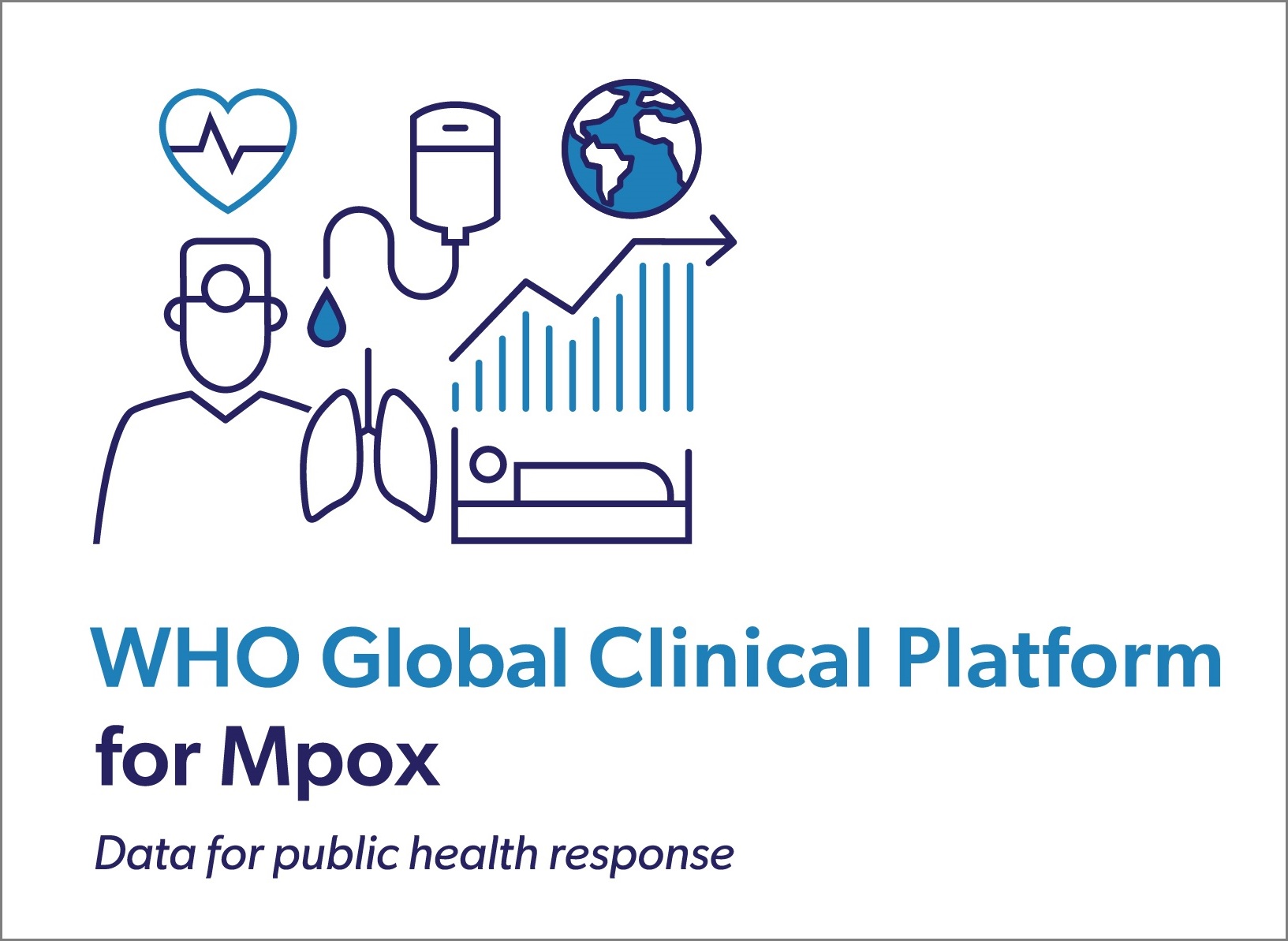The WHO Global Clinical Platform for mpox
Background
Due to global spread, the 2022 mpox outbreak was declared a Public Health Emergency of International Concern (PHEIC) due to the marked geographic expansion of cases and a large increase in the numbers of people affected, particularly amongst men who have sex with men. Severe and fatal outcomes have been strongly associated with immunosuppression, notably HIV. Other vulnerable populations include pregnant people and children. The PHEIC was lifted in May 2023 due to progress in the global response, and a significant decline in the number of reported cases. However, new cases continue to occur outside countries of previously known endemic transmission. In August 2024, an Emergency Committee was convened under the International Health Regulations to evaluate the upsurge of mpox in in the Democratic Republic of the Congo and other countries in Africa. On August 14, 2024, the Emergency Committee met and advised that the situation constitutes a public health emergency of international concern. See news release here.
Global understanding of the natural history of mpox, its clinical features, risk factors for severe disease and outcomes remain incomplete, and the need to clinically characterize patient illness remains.

Purpose
The WHO Global Clinical Platform for mpox was launched in 2022 to collect patient-level anonymized clinical data to understand of clinical features and outcomes of mpox.
Overall objectives:
- Describe the clinical characteristics of mpox;
- Assess the variations in clinical characteristics of mpox;
- Identify the association of clinical characteristics of mpox with outcomes; and
- Describe the temporal trends in clinical characteristics of mpox.
Case report form
WHO has developed a clinical characterization case report form (CRF) to standardize data collection of clinical features of mpox among outpatient and hospitalized cases. Clinical characterization case report forms help in standardizing data collection.
The mpox CRF is available in English, French, and Spanish.
Statistical Analysis Plan
The WHO Global Clinical Platform publishes its Statistical Analysis Plan, which describes how the data will be statistically handled. The reports generated and published from the proposed analyses will help clinicians and national programs to optimize management and response strategies.

Clinical characterization of mpox including monitoring the use of therapeutic interventions: statistical...
This document describes how the data from the WHO Global Clinical Platform will be statistically handled. The reports generated and published from the...
Data ownership and collection
Data contributed to the platform helps WHO support member states in understanding health problems from national and international perspectives. Healthcare facilities and collaborators worldwide have contributed clinical data to the WHO Clinical Data Platform. The WHO would like to extend sincere thanks to all the contributing facilities and collaborators. See the contributors list here.
The WHO Global Clinical Platform has approval from the WHO Ethics Review Committee for collecting and analysing data that is anonymized prior to submission. Data collected is anonymized (i.e., strictly stripped of any personal identifiers) clinical and/or patient data and/or information related to patients. We abstain from collecting data with direct identifiers, such as the date of birth.
Under the Terms of Use of the Global Clinical Platform, all data contributed remains the property of the contributing entity. Contributors retain full ownership of their data and the unrestricted right to use it, including for publications, reports, and other outputs.
Below are examples of publications generated by contributors using data submitted to the platform or collected using our standardized data collection tools (CRFs)
How to contribute data
WHO invites Member States, health facilities, and other entities to participate in the global effort to collect anonymized clinical data relating to suspected or confirmed cases of mpox. You may contribute data from your facility, research group, or other source of health data, provided you have the appropriate local permissions to do so.
Options to contribute clinical anonymized data
- Directly into the electronic WHO Platform using data forms (REDCap).
- Sharing established databases, for example from electronic medical records.
Steps to contribute to the platform
- Review the Terms of Use of the platform.
- Create your profile by registering here.
- You will then receive an email with the login credentials to access the WHO Platform, or, if you are sharing an established database, additional instructions to contribute data.
Documents
Related health topics
Contact
For any additional questions, please contact: global_clinical_platform@who.int


